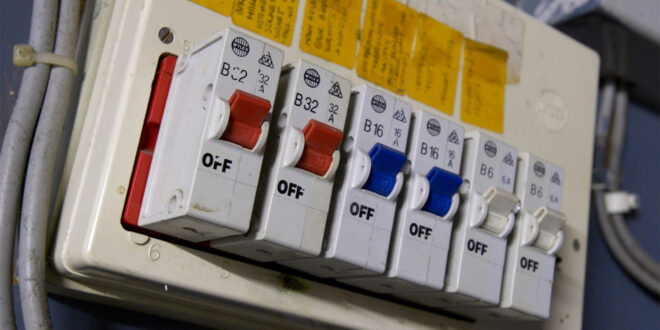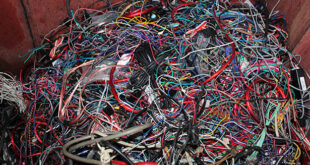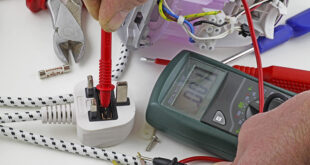Fused disconnect switches and circuit breakers perform similar functions; in most cases, they are interchangeable. However, in some situations, one is preferred over the other, and this post shows you the differences that may make one a suitable option.
Significant issues might arise when electrical systems get exposed to loads higher than those they should handle. Sensitive equipment such as motors, lighting, and electronics may be destroyed or damaged. The current overflow may cause heat to build up in the wires, which could lead to a potentially destructive fire. In such a case, using an overcurrent protection device may have protected the appliance or facility from any damage.
Overcurrent protection devices like fused connection units and circuit breakers disconnect or open the circuit whenever there is a short circuit or an overload. Although the application determines the preference for one, a specialist’s opinion might sometimes be necessary.
PSI Power & Controls offers both fused connection units and electric circuit breakers. Additionally, we have specialists available to help with consultations in finding the right solutions for you. Since 1961, we have served various industrial and commercial clients (from our location in Charlotte, North Carolina) with high-quality electrical equipment and services. Our expertise and customer-centric products and services are unmatched and lead in the market.
What Sets Disconnect Switches Apart from Circuit Breakers?
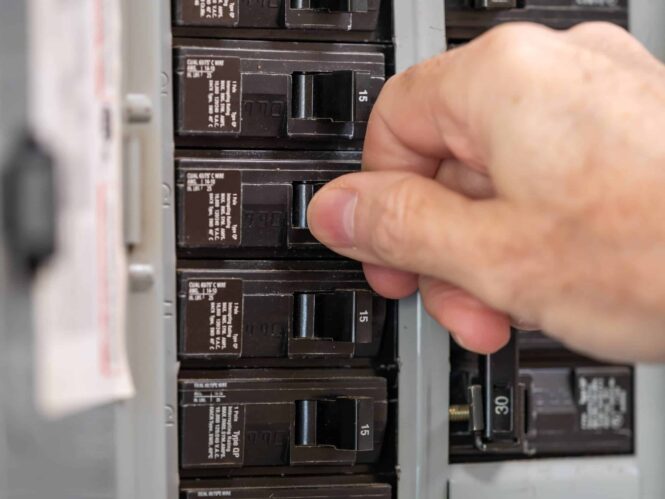
The function of circuit breakers and disconnect switches is to quickly disconnect a circuit in the case of a short circuit or current overload. However, due to the vastly differing designs, they are used differently depending on your facility’s demand.
Fused Disconnect Switch
A fused connection unit comprises a fuse and a switch. The switch manually shuts off power when maintaining or installing any electrical system hardware. On the other hand, the fuse shuts off the electrical circuit when an issue arises.
The fuse has a filament preset with the circuit’s current rating. The filament melts if the circuit’s current load exceeds the amperage rating on the fuse for a prolonged time. As a result, the circuit disconnects automatically and stays disconnected permanently. Replacing the fuse is the only way to get power back up and running.
Fuses are of various ratings and sizes. Most standard fuses have a quick reaction to current overloads or short-circuiting. On the other hand, slower-burning fuses withstand a current overload for short periods, which might be advantageous when dealing with the motor’s current ripple when they start.
Advantages of Fused Disconnect Switch
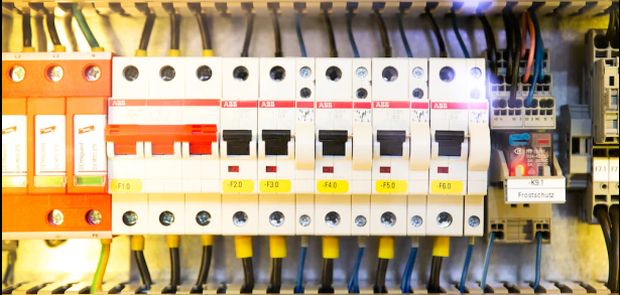
The main advantage of a fused disconnect switch is that it offers increased safety. Unlike circuit breakers, which must be manually reset after tripping, a fused disconnect switch automatically enters an open/off state when it senses a fault or overload. This reduces the risk of accidents due to lack of attention to an active circuit.
In addition, these types of switches have a greater voltage rating than circuit breakers, making them ideal for high-power applications such as those found in plants and other commercial settings. Fused disconnect switches are also available with built-in fault protection features such as lightning protection and short-circuit protection, providing added safety and reliability for operations with sensitive electrical loads.
Circuit Breaker
This breaker integrates the switch and fuse functions in one device. For instance, you can manually shut off a circuit breaker when installing or maintaining any electrical system equipment or the circuit itself. In case of a current overload or short-circuiting, the circuit breaker’s electromagnet automatically shuts off the electrical system. After resolving the issue, turning on the breaker will restore power, and there will not be any need to replace anything.
Advantages of Circuit Breaker
Circuit breakers offer a number of advantages over fused disconnect switches. First and foremost, circuit breakers are designed to trip automatically when an overload or short circuit occurs. This allows for much faster interruption of the current, helping to protect wiring, people, and equipment from dangerous electric shock or fire hazards. Additionally, many models of circuit breakers can also be configured to trip if the current in the line drops too low or spikes too high.
Another advantage of using a circuit breaker is that they are often much simpler to reconfigure than a fused disconnect switch. All that’s necessary is usually just adjusting the trip level on the breaker itself or in software if it’s digital. Fused disconnect switches require physically modifying the switch by replacing fuses for different cut-off values which can be time-consuming and require specialized tools and knowledge that isn’t as widespread as circuit breakers.
Which Solution Is Ideal for Your Application?
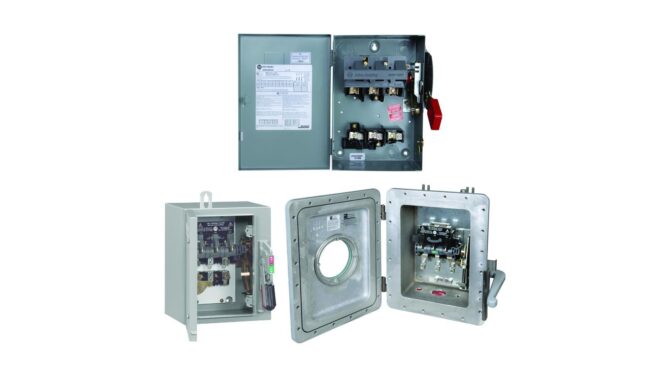
The application of a circuit breaker or fused disconnect switch lies in the design of your facility and the equipment in use. Some facilities require circuits to be disconnected quickly in case of an issue, while others require the system to be a little accommodative for any fluctuations. Here are some of the applications that can help you make a decision.
Disconnect switches frequently are used in electrical systems with exceptionally high currents since the fuse ensures that the electric circuit disconnects if an issue arises.
Circuit breakers are a suitable alternative as they do not require fuse replacement whenever there is an issue. Modern breakers often serve as alternatives to fuses, except for a few high-current instances. Moreover, circuit breakers offer simpler applicability than disconnect switches for three-phase circuits.
You can choose the ideal solution for your equipment and facility with the assistance of an experienced and qualified electrician.
Where to get Circuit Breakers and Fused Disconnect Switches?
PSI Power & Controls offers you everything you need for a safer and more productive working environment. Our products include; safety switches, circuit breakers, and disconnects, among many more. In addition, we also have experts in the field who are ready to consult with your facilities and help you determine the best solutions for your equipment.
Conclusion
Overall, a fused disconnect switch is a device that provides overcurrent protection with a replaceable fuse and is used as an isolator to disconnect power from distribution equipment such as motors, pumps, HVAC equipment, and other electrically powered machinery. On the other hand, circuit breakers are rated devices used for protection against overloads and short-circuits. They are designed to actuate automatically at preset values of current so that they can open the circuit automatically in case of any fault like short-circuiting or single phasing or both.
Fused disconnect switches are usually preferred over conventional circuit breakers as they provide better safety features against accidental contact while isolating electrical components from the main power supply. Fuses are also cheaper than breaker units which makes them useful for small applications in homes and offices where overcurrent needs to be limited but not controlled using larger circuit breakers.
Both fused disconnect switches and circuit breakers have their own set of advantages and disadvantages depending on the application they are used in. In any case, it is important to choose the right device wisely according to your needs as each device offers different levels of protection against electrical faults.
 Imagup General Magazine 2024
Imagup General Magazine 2024
